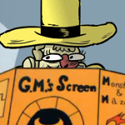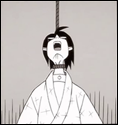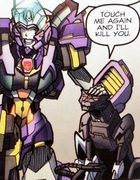|
ritorix posted:The thing is, combat is really swingy, especially when Hunger totals are high and less dice can be affected by Willpower. Next time it could go the other way, especially if you are compensating for the time it went well. And that's when you should probably run, because fighting while Hungry is bad. Imagine that, a game about bloodthirsty hunger monsters penalizing you when you're actually hungry, the equivalent of going into a dungeon unbuffed and not wearing your armor or showing up to a fancy dress ball featuring politiquing and intrigue drunk off your rear end in a speedo and coated in feces.
|
|
|
|

|
| # ? Jun 4, 2024 10:18 |
|
neaden posted:Oh hey I didn't realize Open Sorcery 2 ever came out! Time to go buy that, thanks. Make sure to get the holiday dlc for the first one because it's a sequel where BEL/S learns about the magic associated with winter holidays, the fae and spirits associated with them, the spiritual crustiness of toxic positivity, learning what dreaming is like, and finding out that she really really likes Hanukkah because she greatly enjoys using her FireWall abilities to light the menorah. Everybody should go play those her games.
|
|
|
|
Fuzz posted:And that's when you should probably run, because fighting while Hungry is bad. Honestly I feel like fighting is the one thing Hunger should be neutral on if not helpful for. Like you CAN use WP to reroll hunger dice on rolls to attack or chase someone but if you do so you are committing to using lethal force. Relatedly, I think the "you just take a point of damage" or "your Hunger goes up out of nowhere" bestial failures are poorly conceived, since it's like the Beast is sabotaging its own chance at successful predation rather than your attempts to rise above its urges.
|
|
|
|
Ferrinus posted:Relatedly, I think the "you just take a point of damage" or "your Hunger goes up out of nowhere" bestial failures are poorly conceived, since it's like the Beast is sabotaging its own chance at successful predation rather than your attempts to rise above its urges. I've never been a huge fan of some of the options on what could happen on a Messy Critical or a Bestial Failure. I get that they're trying to encompass a wide variety since either result could happen any time you roll the dice unless you're at Hunger 0, so an ST is prepared for those results on a Wits+Crafts test or something, but some of the options are kind of boring out-of-context (the ones you mention, losing a point of an Advantage), or leaving narrative money on the table (a loss on a Messy Critical). I really wish that section was longer, so that it could elaborate on how to come up with new options on the fly using the results' base concepts, and perhaps provide some examples for how to bake in every suggested option into the fiction of the game as it's actually happening. The one narrative example we do get is for Stains on Messy Critical (an option I really like!) is how it'd affect an Auspex power, but it's weird because Stains seem like they're best handed out for something a vampire actually did in the moment as opposed to a future vision that may or may not come to pass. I'm glad that Compulsions were added to Messy Critical in the errata and later printings, since those are by far the most versatile of the options, even if I'm not a fan of their mechanical executions.
|
|
|
|
Broadly I think bestial failures need to have a sliding scale of effects and the game should be okay with those effects being trivial or cosmetic at the low end. If I'm rolling Int + Streetwise to see if I've heard of a guy and I get a bestial failure thanks to a single hunger die, it's fine if it means I'm just too hungry to think straight and doesn't mean I have to smash my desk in frustration or go so crosseyed with rage that my organs rupture. I think the clan compulsions are a really bad mechanic, incidentally, and one of the ways V5 is straightforwardly worse than V20 or past editions. They're both hamfisted in execution and, like, race-essentialist in conception, even now they're no longer called "triggered" or whatever. Ferrinus fucked around with this message at 19:13 on Apr 23, 2022 |
|
|
|
Ferrinus posted:I have to smash my desk in frustration or go so crosseyed with rage that my organs rupture. I mean, if you're playing it that way your ST is terrible, what the gently caress.
|
|
|
|
Fuzz posted:I mean, if you're playing it that way your ST is terrible, what the gently caress. No, if I'm playing it that way my ST is... average. They ask me to make a basically low-stakes mental roll to see if I know something, but it fails and at least one red die is showing a 1. What do they do? Well, if you turn to the section on bestial failures you'll find a bunch of generic mechanical penalties which are precisely there for the eventuality that there's no other way for a bestial failure to raise the stakes (because there are no humans around to breach the Masquerade at, no valid frenzy trigger, no context in which a clan compulsion applies, etc). Therefore, you either lose 1 mana or take 1 damage (which are basically equivalent to each other), or maybe take 1 "damage" to one of your Merits (Oh, no! My desk and the expensive computer that I kept on it!) Now, I suppose a good ST would know to ignore these rules and just make nothing of consequence happen, such that the bestial failure just determines the flavor description of your failed roll. But what would be better if the rules actually worked like that in the first place, so that average or poor STs knew to do that, too.
|
|
|
|
Ferrinus posted:No, if I'm playing it that way my ST is... average. They ask me to make a basically low-stakes mental roll to see if I know something, but it fails and at least one red die is showing a 1. What do they do? Well, if you turn to the section on bestial failures you'll find a bunch of generic mechanical penalties which are precisely there for the eventuality that there's no other way for a bestial failure to raise the stakes (because there are no humans around to breach the Masquerade at, no valid frenzy trigger, no context in which a clan compulsion applies, etc). Therefore, you either lose 1 mana or take 1 damage (which are basically equivalent to each other), or maybe take 1 "damage" to one of your Merits (Oh, no! My desk and the expensive computer that I kept on it!) "If nothing of consequence were supposed to happen on a bestial failure, the rules would allow for that!"
|
|
|
|
Fuzz posted:I mean, if you're playing it that way your ST is terrible, what the gently caress. Or they're new to the game and trying to work on what guidance the corebook gives, which leans towards big, dramatic displays. The play examples for some compulsions aren't too far off from those goofy events. Sure, the new ST could read advice here or on Reddit or the WoD Discord, but you can't count on a reader knowing to do these things. This is why I think it was a missed opportunity to have a section either in the rules themselves or in the ST section on how to better prepare for when Messy Crits and Bestial Failures arrive, whether that means thinking smarter about when to call for a roll or providing a series of narrative consenquences when none of the mechanic-conmected options work for the moment. I hope the upcoming guide'll have a nice section on that.
|
|
|
|
Ferrinus posted:No, if I'm playing it that way my ST is... average. They ask me to make a basically low-stakes mental roll to see if I know something, but it fails and at least one red die is showing a 1. What do they do? Well, if you turn to the section on bestial failures you'll find a bunch of generic mechanical penalties which are precisely there for the eventuality that there's no other way for a bestial failure to raise the stakes (because there are no humans around to breach the Masquerade at, no valid frenzy trigger, no context in which a clan compulsion applies, etc). Therefore, you either lose 1 mana or take 1 damage (which are basically equivalent to each other), or maybe take 1 "damage" to one of your Merits (Oh, no! My desk and the expensive computer that I kept on it!) Same goes for my xp complaint from last week. An experienced ST will notice how that doesn't work and give more XP than supposed, but a new or bad one will just give 1-2xp per game to his players and that will be awkward.
|
|
|
|
Hell, I'm not even sure that a vampire having a shot of flipping out and going Kylo Ren on their desktop because they haven't fed recently and are annoyed they can't quite recall someone's name is a bad thing. It underlines the fact that vampires are inherently volatile, that you're about as safe around one as around a "domesticated" tiger. But if you're committed to always giving bestial failures hard, mechanically-reified costs, then that means you have to think pretty seriously about if or when it's fair to call for a dice roll, if you aren't accidentally favoring or disadvantaging certain players just because one happens to picking the dice up at your command more than others, etc. It might be better, for instance, if being at a certain Hunger level just called for a self-control roll per night, or per scene, or even per minute depending on how high your Hunger is irrespective of what you're actually doing, with failure indicating some sort of breakdown or outburst that isn't keyed to whether you're doing something you're specced into or not.
|
|
|
|
Ferrinus posted:I have to smash my desk in frustration or go so crosseyed with rage that my organs rupture. Turns out I've been method acting with my posting.
|
|
|
|
General rule: if you don't have an interesting idea of what happens if somebody fails a roll, don't ask for a roll. Kind of an extension of "don't ask question you don't want answered."Jhet posted:I think we end up agreeing in really a lot of ways. I want those options to hold trials, or end a fight with Dominate. Those are great. Trimmed for length. I mean, I don't think you're like wrong to want what you want, I just am having a little trouble engaging because it's kind of alien to me. Like the restriction as I see it on Vampires is that any vampire you make is a predator. A lot of my favorite PCs I've played over the years have all converged around being, well, pretty similar to Aang. Aang is not a viable type of vampire, and it's not because of the restrictions on where you put dots (though "what if Aang got turned into a vampire" is a potential PC). I will say that if you want to focus on the supernatural powers, which to be fair who doesn't the bigger obstacle in all editions is the amount of non-supernatural character sheet stuff that competes for your attention (and XP!). I've generally divided XP into "supernatural XP" and "mortal XP" and handed out both pretty generously but this is not at all how the games were designed.
|
|
|
|
Tulip posted:General rule: if you don't have an interesting idea of what happens if somebody fails a roll, don't ask for a roll. Kind of an extension of "don't ask question you don't want answered." I don't agree at all here. The stats and skills in Vampire and similar games are straightforward and boring measures of ability; they are extremely useful for answering idle questions that will shape the contents of a scene but don't themselves have massive consequences. "You've never heard of him" or "It remains locked" are perfectly legitimate outcomes of a skill check and I have found it very helpful to be able to ask for or propose rolls like that as both an ST and player. Now, hypothetically you could draw a hard like between "casual" rolls and "high stakes" rolls or something and only apply serious Hunger effects to the latter, but that doesn't account for the fact that you could easily have a really charged scene with few or even no dice rolls or for the fact that your ability to keep a handle on the beast within still ends up scaling in weird ways off how good you are at math or how many pushups you can do in a row.
|
|
|
|
Tulip posted:I mean, I don't think you're like wrong to want what you want, I just am having a little trouble engaging because it's kind of alien to me. Like the restriction as I see it on Vampires is that any vampire you make is a predator. A lot of my favorite PCs I've played over the years have all converged around being, well, pretty similar to Aang. Aang is not a viable type of vampire, and it's not because of the restrictions on where you put dots (though "what if Aang got turned into a vampire" is a potential PC). Iíve used that XP system with Changeling and Vampire and it makes the game feel less like a slog and more like a game that you actually get to play. There should still be a feeling like you donít quite have enough, but you should still get to buy advancements. Too many of the Masquerade games Iíve played in ended up being 2-3 sessions before buying something and it would only be maybe a skill dot. It was very much not a game where you could react and buy larger character advancements at any rate that didnít take playing for months. Vampires are definitely predators, no question about it. But I donít buy the idea that a supernatural predator would change as slowly as the books want you to trickle out XP. A good predator will hone its ability and to me that means they apply themselves in their endeavors. Iím not particularly familiar with Aang, but there are so many different ways to make a predator that even the most awkward or fumbly character could be a predator in their own way.
|
|
|
|
Tulip posted:General rule: if you don't have an interesting idea of what happens if somebody fails a roll, don't ask for a roll. Kind of an extension of "don't ask question you don't want answered." Very much this. The dice serve the narrative, not the other way around. If there's no risk of failure or it doesn't matter if they fail the roll, there's literally zero reason to break up the narrative by inserting dice rolls.
|
|
|
|
Fuzz posted:The dice serve the narrative, not the other way around. Ferrinus posted:"You've never heard of him" or "It remains locked" are perfectly legitimate outcomes of a skill check and I have found it very helpful to be able to ask for or propose rolls like that as both an ST and player.
|
|
|
|
Chernobyl Peace Prize posted:O wise sage of the dice and champion of elevated gaming, we thank you for blessing us with this wisdom. On the other hand, in these instances: Sir, this is a Wendy's.
|
|
|
|
Fuzz posted:The dice serve the narrative, not the other way around. The dice are the narrative, just as much as the dots on a sheet, the narrative ways that we as a troupe tie those dots together, and an ST's plans. System is story, and story is system. V5 understands this, it's why Hunger infiltrates a player's dice pool. It's a little heavy handed, but every roll of the dice has the potential to light up a scene in flames, and I've experienced it multiple times in my chronicle. That's why I really would have liked some non-mechanical, narrative options for an ST to select for Messy Critical and Bestial Failures, and perhaps some more in-depth ST advice on when to call for a roll, when to let a player take half, or when to just give them the win (or the loss!). This edition makes a dice roll feel like a much bigger deal than say, a Dungeons & Dragons game or even previous editions of Vampire: The Masquerade, and I don't think the core rulebook makes the implications of that clear enough, which is why new players and STs can end up blindsided. People turn to the dice for "trivial" things because it puts narrative decision making out of the ST's hands, it serves to set the pace, or because they see dice rolling as gameplay in and of itself. If they try that in V5, they could end up in situations that I think the core rulebook doesn't quite prepare them for. We know better as seasoned vets, but this is supposed to be the edition that reaches out to a larger audience, and I feel that not talking about how Hunger effects the story beyond pure mechanical effects is a missed opportunity. This isn't a knock on what I think is a very solid ST section, for what it's worth. This is just me wishing it had a little extra word count for this sort of thing.
|
|
|
|
What they should've done is get rid of Messy Criticals/Bestial Failures as universal rules made Hunger Dice affect dicepools differently based on the type of roll. Like... Physical: Add your Hunger Dice to the pool rather than replacing regular dice, but the Messy Critical rule applies and treat any roll in which half or more of your successes are red as "messy". You're free to pretend your Hunger is higher than it is on any physical roll, but when you do you immediately make a Rouse check for each die you spoofed. Mental: 1s subtract on your Hunger Dice because the hungrier you are the harder it is to think straight. No special success or failure modes and this doesn't apply to rolls to track prey, notice immediate physical danger, or activate Disciplines. Social: Bestial Failure rules apply, but always mean that you can't keep your inhuman nature below the surface, which might mean Masquerade breaches in public but just embarrassment in Elysium. If half or more your successes are red, you still succeed, but with a weird affect or intensity that could tip mortals off that there's something unusual about you.
|
|
|
Ferrinus posted:What they should've done is get rid of Messy Criticals/Bestial Failures as universal rules made Hunger Dice affect dicepools differently based on the type of roll. Like... If I run V5, i'm using this, that's great
|
|
|
|
|
Ferrinus posted:I don't agree at all here. The stats and skills in Vampire and similar games are straightforward and boring I'ma be real with you chief: I'd consider this here by itself to be a failing. And that's like leaving aside that just not knowing who somebody is or a door remaining locked can itself be interesting or be useful to set up later interesting interactions; "you fail to pick the lock" is very much a common outcome in BITD and BITD is a game where you're supposed to negotiate the stakes of a roll for every roll, such that all rolls have to be justified before they're made. Just, philosophically, as a GM, I don't want to invoke dicerolls unless I have a reason to. The dice are there to adjudicate when it would be faster or easier than "it just happens." Of course this is kind of a matter of dramatic vs comedic storytelling. You mentioned a vampire going Kylo Ren because they're bad at google or whatever. Which, afaict, is the intended play of Vampire. Which is...very loving funny. I got a good laugh when you posted that and I like it. It's very much Paranoia design, and Paranoia is a masterpiece so I can't fault that. I guess what I'd say is that the roll for everything approach is something I don't particularly like because I find it time consuming and can grind things to a halt, but to have your game be oriented around serious hardcore monsters who can slip on a banana peel every time they try to open a door has great comedic potential and is probably a significant contributing factor to why WOD is more What We Do In The Shadows than Dracula. Chernobyl Peace Prize posted:O wise sage of the dice and champion of elevated gaming, we thank you for blessing us with this wisdom. On the other hand, in these instances: p good shitpost lol
|
|
|
|
Tulip posted:Just, philosophically, as a GM, I don't want to invoke dicerolls unless I have a reason to. The dice are there to adjudicate when it would be faster or easier than "it just happens." To steal a point from the TG chat thread a while back, one of the dirty secrets of RPG design is that people just... like rolling dice. It makes people feel like they're doing something. So, ultimately I agree with Ferrinus. As-is, the natural tendency for people to roll dice more than they need to conflicts with hunger dice causing very dramatic failures, and newer GMs could use the permission to lowball the effects of Hunger dice when you get into that grey area of unnecessary-but-feels-good rolls.
|
|
|
|
Tulip posted:I'ma be real with you chief: I'd consider this here by itself to be a failing. Around Requiem's release I remember a guy on RPG.net just treating the game with utter scorn because despite its pretensions to ~Personal Horror~ it had stats for how good you were at driving or how much you can bench. What was with the boring, flavorless, "simulationist" stat list? Why weren't its core character traits and resolution systems actually centered on more thematic and directly-narrative traits that put front and center how guilty your character felt or how tragic their life is or whatever? Well, it was so that strong characters could beat up weak characters and stealthy characters could sneak up on oblivious characters, so that there's an underlying pragmatic and material basis to the stories of loss and horror that you're supposed to be telling about these vampires. If your character is helpless to do something, it's for real reasons. If they're powerful or well-connected enough to do something really bad, that's also got a physical or a social basis. The reason they're desperate for blood is that they'll die without it, because blood feeds directly into their ability to take actions and withstand danger, and so on. You could certainly design a game about vampires differently, where there's like a single Nobilis-style "how competent are you at stuff" trait that's almost an afterthought (or no such trait at all!) and then a full spectrum of detailed, crunchy rules specifically covering drama and storytelling, and I don't think that would necessarily be worse (though I would like it less), but it's not a failing that Vampire as-is has attributes like "Stamina" and skills like "Computer". It'd be like calling it a failing that D&D has rules for moving on a grid. I'd actually say that the comedy of What We Do In The Shadows, and the resonance it has for White Wolf-style Vampire games specifically, comes directly out of the fact that Vampire actually places a lot of emphasis on your character's boring, real-life competencies and social connections. The three main vampires don't have a total meltdown over receiving a chain letter because their high Hunger ratings add dramatic stakes to their every attempt to use their skills... they have a meltdown because they just don't have certain skills, and have no idea what something is or how to respond appropriately. Nandor is basically a study into how funny it would be to have Vigor 5 but Streetwise 0, no Hunger required. In fact, as-written Hunger would probably have a chilling effect on Nandor's player, because suddenly instead of just, you know, failing at something because of a lack of practice or contextual knowledge, their character stands to actually take damage on a poor enough roll! A really bad part of this system, that I've mentioned obliquely before, is that it's very easy to get into a mode where you're quietly hoping Teacher doesn't call on you and not stepping forward to engage with the scene by making rolls (but of course are perfectly able to talk to NPCs or similar) because the consequences of being low on blood only fall on you for metagame rather than narrative reasons.
|
|
|
|
The reason to skip over low-stakes dice rolls sometimes isn't one of game design but of social dynamics. This matters in two ways. The first is time: RPG sessions take place over a finite amount of time and every invocation of the mechanics has a cost measured in minutes, in percentage of a session. How we spend that time is important not just for narrative momentum but for engagement; sitting and watching people finger their dicebag becomes sitting and looking at your phone, or tabbing over to the internecine forums argument on your second monitor, or (synthesis) getting mad on Twitter, or whatever. This has a cumulative subtractive effect on the energy at the table, and so I think asking "is the juice worth the squeeze here?" is not just valuable but sometimes essential. The second is emotional balance and group mood. While a lot of players love rolling dice just to roll dice, a lot of players also have really intense negative emotional reactions to failed dice rolls, and this is not at all proportionate to the stakes of the roll, in the same way how people respond to any given irritant is deeply personal and will fluctuate based on context and mood etc. For me, a big chunk of the psychic energy involved in running a game comes from balancing people's tolerances and desires here, because it's going to vary from player to player and also for a single player from session to session or scene to scene or even roll to roll. As an ST I regularly find myself handwaving or skipping over rolls I'd be happy to make as a player, win lose or draw, because it's not just about whether you can pull narrative and gameplay value from failures. You basically always can! For me, it comes down to the opportunity cost both in terms of time spent and in terms of the budget of various players' tolerances for loving up or looking dumb or losing a straight-up contest.
|
|
|
|
Attorney at Funk posted:The reason to skip over low-stakes dice rolls sometimes isn't one of game design but of social dynamics. This matters in two ways. The first is time: RPG sessions take place over a finite amount of time and every invocation of the mechanics has a cost measured in minutes, in percentage of a session. How we spend that time is important not just for narrative momentum but for engagement; sitting and watching people finger their dicebag becomes sitting and looking at your phone, or tabbing over to the internecine forums argument on your second monitor, or (synthesis) getting mad on Twitter, or whatever. This has a cumulative subtractive effect on the energy at the table, and so I think asking "is the juice worth the squeeze here?" is not just valuable but sometimes essential. This is a really good post, I mean that seriously since it's hard to tell in a thread full of sarcastic shitposting. I agree 100%, this is exactly my approach and thank you for vocalizing it so well. The "is the failure on this worth the time spent?" factor is massive.
|
|
|
|
To be clear, I also think v5's messy crit mechanic is dumb and would use Ferrinus's model or something like it if I was running it myself. But I'd do so while also balancing when a roll is both useful and worthwhile.
|
|
|
|
Fuzz posted:I agree 100%, this is exactly my approach and thank you for vocalizing it so well. The "is the failure on this worth the time spent?" factor is massive. Put it this way: Hunger Dice as-written significantly increase the average time spent on a failed or successful roll. In V20 or VtR, there are a lot of rolls that don't actually represent serious costs to the game precisely because they give yes/no answers to basically low-stakes, scene-framing or flow-of-conversation-directing questions. You can no longer make these in V5 because there is a serious chance they will have disruptive or ridiculous outcomes vastly out of step with their significance. Now, as I write this it occurs to me that V5 does have one release valve: IIRC it has guidelines for autosuccesses somewhere, like if your dicepool is over double the difficulty or something like that? So if you apply that aggressively you can tamp down on the amount of rolling and therefore increase the percentage of rolls capable of having bestial failures, regular failures, successes, criticals, and bestial criticals all being legible. But there's still a band of borderline stuff that can produce weird results, and I think this comes out of a fundamental mismatch: attribute+skill rolls ask if you are competent enough to succeed at something, while hunger rolls ask if you're able to control your bestial impulses, and these two things are only loosely related. If checks for how bestial your behavior was were orthogonal to checks for how talented or well-trained you were, rather than living in the same dicepool, you wouldn't have to play around all these weird hitches and disconnects.
|
|
|
|
Ferrinus posted:Put it this way: Hunger Dice as-written significantly increase the average time spent on a failed or successful roll. In V20 or VtR, there are a lot of rolls that don't actually represent serious costs to the game precisely because they give yes/no answers to basically low-stakes, scene-framing or flow-of-conversation-directing questions. You can no longer make these in V5 because there is a serious chance they will have disruptive or ridiculous outcomes vastly out of step with their significance. It does and it also has a "succeed at a cost" without rolling rule, where you can succeed but there's some minor fallout which you negotiate with the ST. It also has this in the Core book:  (Page 130) Which basically covers the "well, the rules don't say it, BUT..." situations, or "allow" you to just ignore poo poo like Bestial Fails or Messy Crits if they're pointless or supremely inconvenient to the story being told, so  
|
|
|
|
Fuzz posted:It does and it also has a "succeed at a cost" without rolling rule, where you can succeed but there's some minor fallout which you negotiate with the ST. It also has this in the Core book: I really can't fathom how someone could think a "feel free to ignore the rules" sidebar constitutes a defense of the rules. That's what I've been talking about this whole time! You need to ignore the rules because they're bad! How often do you see yourself Golden Ruling your way out rolling a Rouse check at sundown to see if your vampire gets hungrier as they rise? (I mean in the course of ongoing action as opposed to a "three months later..." timeskip) I'm guessing it's between "almost never" and "literally never" because getting hungrier by the night is actually key to the game and an excellent piece of design stretching back through every edition, as opposed to a weird kludge that forces you to sanity check what would in V20 have been completely normal skill usage. Ferrinus fucked around with this message at 03:26 on Apr 26, 2022 |
|
|
|
Attorney at Funk posted:The reason to skip over low-stakes dice rolls sometimes isn't one of game design but of social dynamics. This matters in two ways. The first is time: RPG sessions take place over a finite amount of time and every invocation of the mechanics has a cost measured in minutes, in percentage of a session. How we spend that time is important not just for narrative momentum but for engagement; sitting and watching people finger their dicebag becomes sitting and looking at your phone, or tabbing over to the internecine forums argument on your second monitor, or (synthesis) getting mad on Twitter, or whatever. This has a cumulative subtractive effect on the energy at the table, and so I think asking "is the juice worth the squeeze here?" is not just valuable but sometimes essential. Well fuckin said.
|
|
|
|
WoD is a game where I feel like incidental rolls are more important because half the time it's just a (un)life sim with stories coming out of minor fuckups spiralling out of control. Botching a feed roll, being unable to hold territory, tearing someone's ghoul in half because they lit a cigarette, getting caught hacking into a network, accidentally letting someone see you turn into a dog, crashing your car an hour before sunrise miles from your haven, that's the good stuff. They're not failstates, they're story generators. I do pull punches a bit in these cases as long as the players make a reasonable effort. It's no fun ripping up a character sheet because you rolled 30 dice and got 0 successes while doing something simple.
|
|
|
|
CHanging the subject, I remember seeing the name Chuck Wending in author credits a lot in the oWoD days. What exactly is he responsible for? And was he always so... bad, or did he write good stuff once upon a time?
|
|
|
|
MonsieurChoc posted:CHanging the subject, I remember seeing the name Chuck Wending in author credits a lot in the oWoD days. What exactly is he responsible for? And was he always so... bad, or did he write good stuff once upon a time? Chuck was a ttrpg freelancer for actual White Wolf from around the millenium. In the oWoD, he wrote on the last couple of Hunter: The Reckoning books, most of Demon: The Fallen and I think one of the final Werewolf : The Apocalypse Tribe books. He had a much longer and more storied nWoD career - he wrote on Armoury. Requiem for Rome. The Requiem Clanbooks. He worked on pretty much every nWoD corebook from Changeling through to Geist. Most notably, though, he created Hunter: The Vigil and was its 1st edition line dev. He was still around when I started - I worked with him on Dancers in the Dusk, the Awakening Chronicler's guide, Dance Macabre, I even met him at GenCon one year, but his Miriam Black novels really took off not long after and the time : pay ratio for ttrpg work stopped making sense for him. EDIT: So when internet types claim he's a one-man war against libraries or other untrue things, I just think "Chuck's the guy who wrote Dudes of Legend". I always misremember him as being the creator of Count loving Dracula, but that was Ben Baugh. Dave Brookshaw fucked around with this message at 00:56 on Apr 26, 2022 |
|
|
|
He's also a fiction author who led a one man crusade against such dens of piracy as, the Internet Archive. Nobody was pirating his books there, but it was technically possible so he poo poo his pants on twitter a lot. His success led the big publishing houses to start copying his strategy and suing the poo poo out of anywhere that wasn't putting money in their pockets directly. Here's a read if you're bored and want to laugh at a guy who types like the cromulent fuckcrustable dude. If Medium's not your speed, here's the Internet Archive post about taking their services down due to Chuck's lawsuit. I don't think it's so much that it was a vital or especially important service as it was pathetic and ridiculous to watch a smalltime author lose his mind over the notion that the poors might read his book for free, even though they weren't. Edit: Chuck wasn't involved in the suit, see below! worm girl fucked around with this message at 03:25 on Apr 26, 2022 |
|
|
|
Dave Brookshaw posted:He had a much longer and more storied nWoD career - he wrote on Armoury. Requiem for Rome. The Requiem Clanbooks. He worked on pretty much every nWoD corebook from Changeling through to Geist. If he worked on the Requiem Clanbooks then he did in fact work on things I liked.
|
|
|
|
worm girl posted:He's also a fiction author who led a one man crusade against such dens of piracy as, the Internet Archive. Nobody was pirating his books there, but it was technically possible so he poo poo his pants on twitter a lot. His success led the big publishing houses to start copying his strategy and suing the poo poo out of anywhere that wasn't putting money in their pockets directly. Chuck was not involved in any lawsuit against the Internet Archive, did not "lead" anything, and was not involved in any broad movement against the Internet Archive beyond tweeting a few times about how they shouldn't be putting copyrighted works up for open consumption without consulting authors or publishers. It was never a crusade against "poors," it was just, hey, you're not actually legally allowed to do that, you don't get to say that because COVID is forcing us all indoors you're opening an emergency public library without actually getting legal permission to do it first, that's not how this works. As someone who's friends with him elsewhere, I've watched him get harassed about this, and his role in it grossly exaggerated, for literally years now, largely, it seems, by people who are still mad that he put a gay dude in the Star Wars: Aftermath novel. He was later chased out of Star Wars media production by someone at Disney mad about him tweeting "politics," which is to say getting angry on twitter about something Republicans did. There's characters on-screen in the sequel trilogy he invented and he got nothing from it because he was fired first and all his Star Wars work was work-for-hire. But sure, keep calling him cringe. (God, this is infuriating. I encourage anyone on the fence about this to go and read the provided link but really pay attention to how much vitriol it throws Wendig's way while having to constantly admit that he's not actually at fault for any of the things it's implying he's at fault for.) Stephenls fucked around with this message at 03:23 on Apr 26, 2022 |
|
|
|
Goddamn this thread just delivers like crazy for hot takes all around.
|
|
|
|
Interesting, I guess I was misinformed about Chuck Wendig. He wasn't involved in the lawsuit, though he made a lot of noise about the issue at the time. And his posts are still bad!
|
|
|
|

|
| # ? Jun 4, 2024 10:18 |
|
worm girl posted:Interesting, I guess I was misinformed about Chuck Wendig. He wasn't involved in the lawsuit, though he made a lot of noise about the issue at the time. He is the guy who wrote Dudes of Legend. He's really like that; it's not an affectation. If he weren't that guy, he also wouldn't be the guy who did all the great work he did on the nWoD.
|
|
|




























